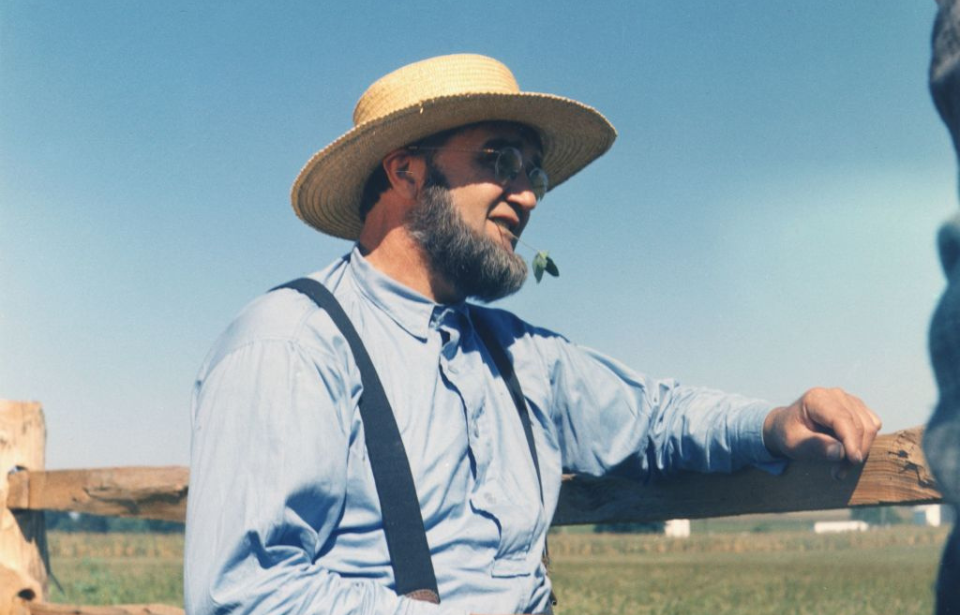The Amish are well known for their distinctive Christian communities, where a simple, humble lifestyle reflects their deep spiritual values. Among the most visible signs of faith for Amish men is the tradition of wearing long beards, which symbolize maturity, marital status, and devotion.
However, unlike many modern beard styles, Amish men deliberately shave their upper lips, leaving their beards mustache-free. This practice dates back to the 1800s, when mustaches were strongly associated with military officers and the culture of warfare. By rejecting mustaches, Amish communities made a clear statement of their pacifist beliefs, distancing themselves from the violence and militarism that mustaches then represented.
Amish beards pay homage to the Bible
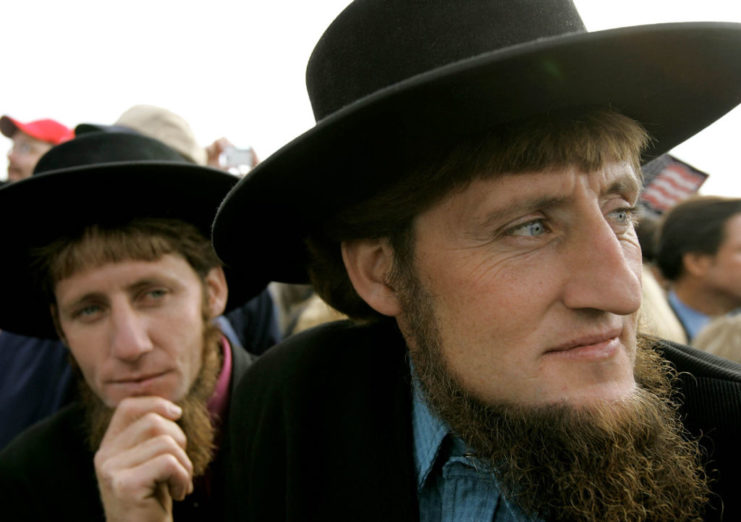
The Amish maintain close ties with Mennonite churches but set themselves apart through distinct customs that mark their identity. One such custom is the growing of beards, which they see as a way to honor the Bible and its teachings. In the era reflected in their religious texts, men typically wore full beards since razors were not yet in use, and Amish men continue this practice as a way to adhere to this tradition.
Pacifism is a core Amish belief
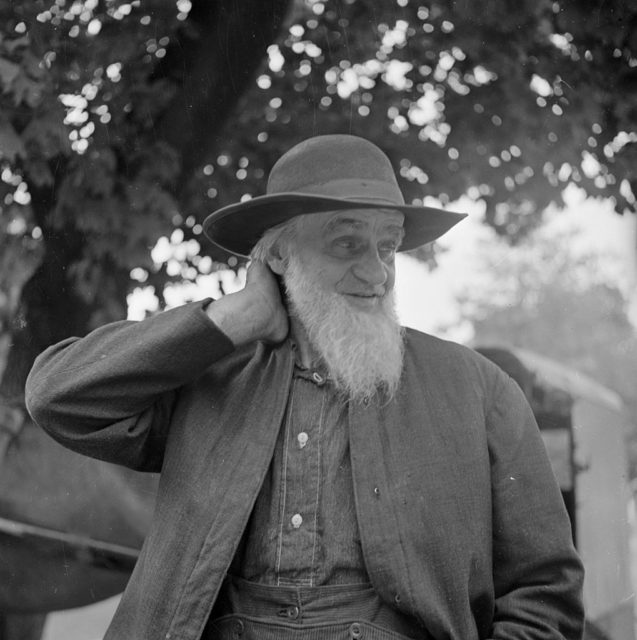
Leviticus 19:27 – “Do not cut the hair at the sides of your head or clip off the edges of your beard”– The Amish take this teaching to heart and follow it without exception.
Another key part of their faith is the belief in non-resistance, which is much like pacifism. They try to avoid conflict and don’t oppose authority, even when they believe something is unfair. This belief influences how they live, treat others, and view war. Since serving in the military goes against their values, they don’t enlist or take part in combat.
Mustaches were once closely associated with soldiers and military life, so Amish men choose not to grow them as a way to show their dedication to peace.
Why don’t Amish men sport mustaches?
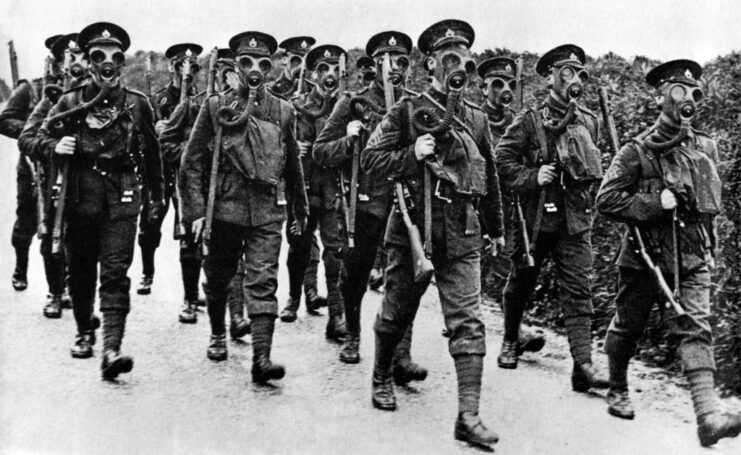
Nowadays, sporting a mustache is a style preference, but historically, it was once a symbol of military service. Facial hair has been linked to warfare and the might of soldiers, especially in cultures where beards and mustaches are seen as symbols of masculinity. Even now, in some regions, soldiers wear facial hair to earn respect.
The British Empire made mustaches mandatory for soldiers
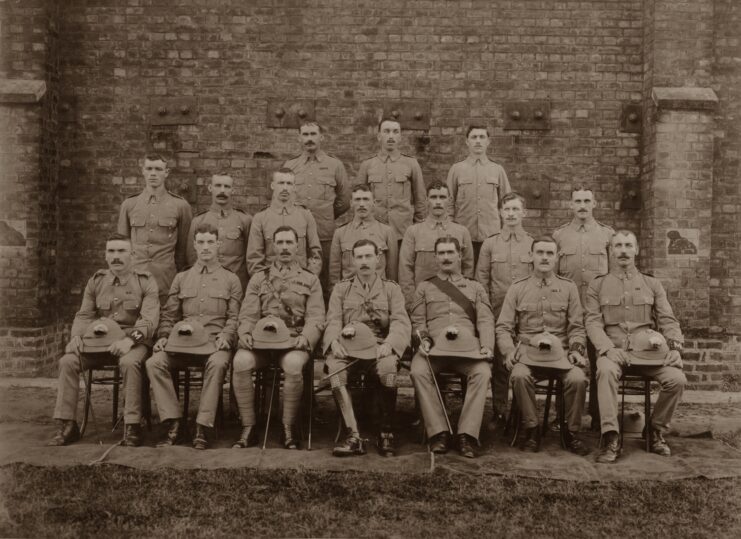
The British Empire, for example, held a strong preference for mustaches, even making it mandatory for soldiers at one point. This regulation remained in place until World War I, when maintaining a mustache became less of a priority and impractical due to the difficult conditions in the trenches on the Western Front.
Furthermore, the onset of gas attacks on battlefields raised worries that facial hair could prevent gas masks from sealing properly against the skin. As a result, the mustache requirement was abolished in October 1916.
The Amish beard avoids all association with the military
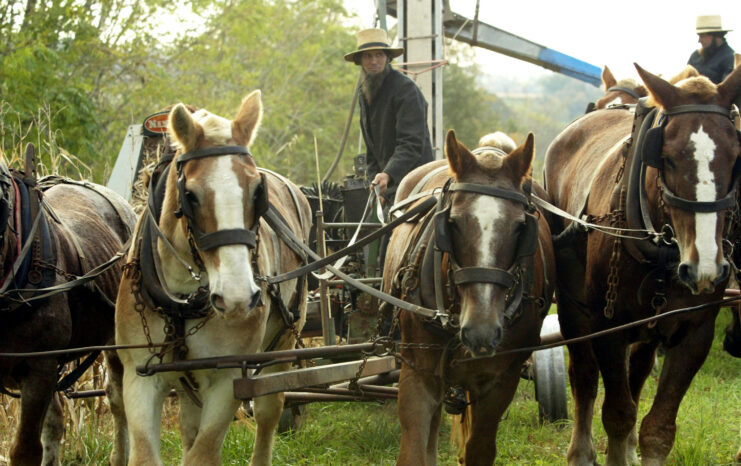
More from us: George Ray Tweed: The Man Who Evaded the Japanese on Guam for Over Two Years
Because mustaches were historically linked to military service and authority, the Amish avoid growing them to firmly reject any association with war or violence. This deliberate choice lets them keep their long beards—an important part of their faith—while clearly signaling their commitment to pacifism. The tradition also carries personal meaning within Amish society: a full beard marks a man as married, serving as a visible alternative to a wedding ring and highlighting his new responsibilities to his family and community.
